Extremism is rising in Europe as far right groups exploit divisions in society
Far right groups are increasing in popularity by using tricks that have already started to cause havoc. See what’s happening.
World
Don't miss out on the headlines from World. Followed categories will be added to My News.
At a country hotel west of Berlin, an extraordinary meeting occurred between neo-Nazi activists and politicians who one day may hold Germany’s balance of power.
More than 20 people filled a room at the three-storey Landhaus Aldon hotel in Potsdam. Overlooking gardens and a lake, the hotel was a pretty scene for the ugly talks that were exchanged behind closed doors.
German investigative publication Correctiv revealed politicians from Germany’s Alternative for Germany (AfD) met extremist group Identitarian Movement and neo-Nazi activists at the hotel to discuss a “masterplan” for mass deportations if AfD ever formed government.
It’s a scenario that is becoming increasingly possible – and took on a new significance this week as far right figures joined already-tense protests throughout Germany.
The AfD is rising in popularity and polls show it is several points ahead of Chancellor Olaf Scholz’s governing Social Democratic Party.
It is polling in first place in five German states, three of which will hold elections this year.
It’s rise in popularity coincides with a rise in extremism in Germany and a record number of politically motivated crimes carried out by extremists.
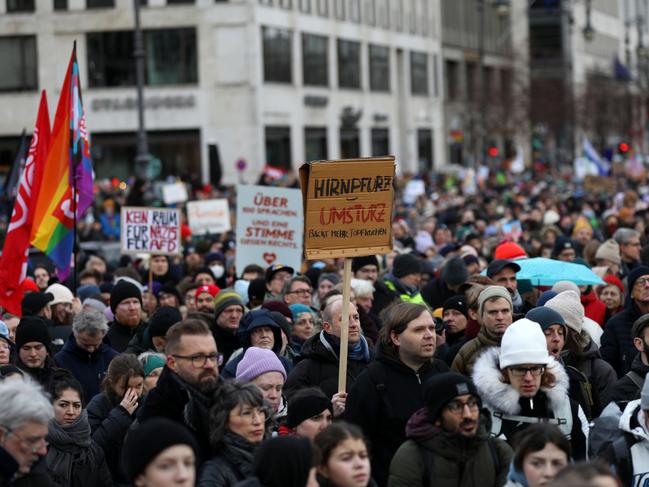
They include an attack on a synagogue, the murder of a state politician, and right-wing extremists joining violent pandemic protests.
German authorities have warned right wing extremism poses the biggest threat to the country’s domestic security. Prosecutors last month charged 27 people with terrorism charges relating to an alleged plot to overthrow the government.
They allege the arrested people were driven by conspiratorial beliefs who were convinced Germany was being run by a shadowy “deep state”.
They included members of the Reich Citizens Movement – that rejects Germany’s constitution – and QAnon, the global conspiracy that began in the United States.
Some in the group are charged with “preparation of high treasonous undertaking” after plans to storm the German parliament and arrest MPs were discovered.
The arrests comes as extreme sentiment rises in Germany, and throughout Europe. A study by the think tank Friedrich Ebert Foundation showed that eight per cent of the population had a right wing extremist view.
The survey showed less than 60 per cent of Germans had faith in democracy and institutions, with rising distrust in politicians, the media and, alarmingly, 20 per cent said they supported the statement “our country increasingly resembles a dictatorship rather than a democracy”.
This week some of the those feelings were brazenly on display as far-right protesters joined a farmers protest aimed at the German Government.
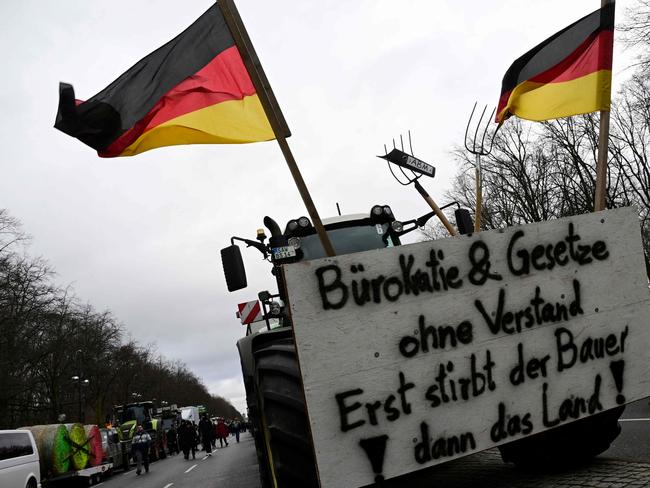
During a rally by the German farmers – angry at cuts in subsidies – police separated several dozen far-right supporters from the main demonstration, sparking fears that extremists are seeking to exploit the protest movement.
The fears are not unfounded. The Freie Sachsen group, which ignites monarchists, conspiracy theorists and the far right, has posted messages of support for the farmers online.
Other groups, like the neo-Nazi Third Voice and nationalist movement One Percent, have urged strikes and riots.
They are accused of being behind controversial stunts such as setting up gallows on the side of motorways and an angry mob stopped the Vice Chancellor from disembarking from a ferry.
ASPI head of strategic policing and law enforcement Dr John Coyne said there had been a “stunning drop in confidence” in public institutions across the Western world, including Australia.
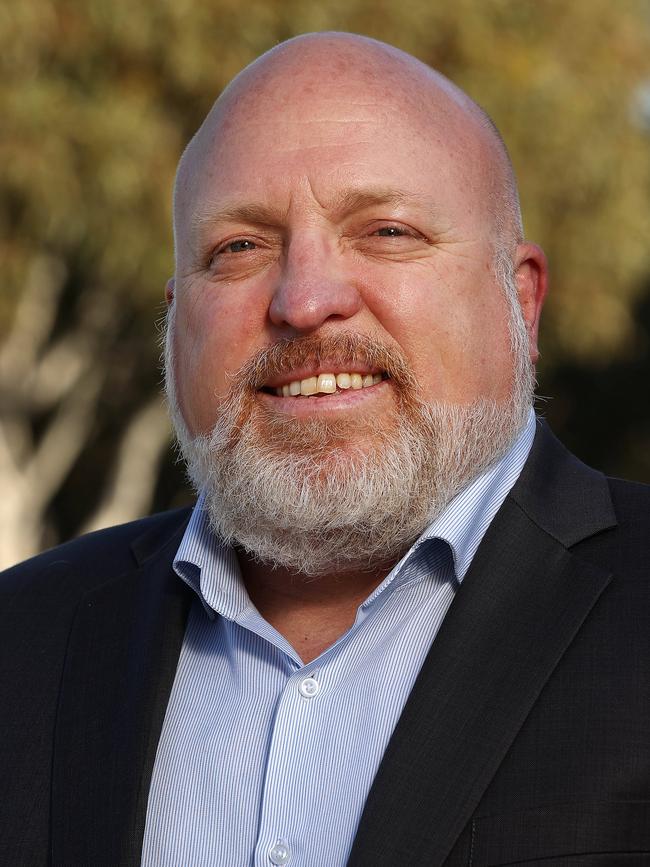
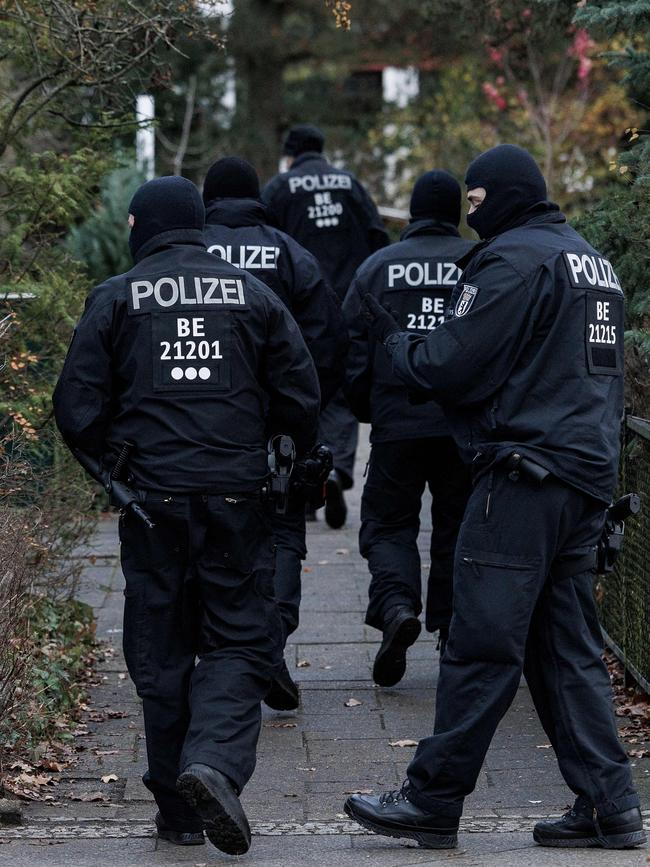
“Some of the things behind the economic downturns are rising cost of living, increase strategic uncertainty, climate change … these things are all oscillating around and creating even further distrust between traditional governments, traditional parties, and the people,” Dr Coyne said.
It was human nature to try to answer these complex issues – and the far right is increasingly filling that void, he said.
“In many cases, these extreme right wing movements, offer a relatively simplistic model for people to project blame and explain their circumstances,” Dr Coyne said.
The rise in influence of social media is also fuelling extremism by acting as an “agent provocateur” that was uniting groups that are distant geographically and ideology to gain “critical mass”.
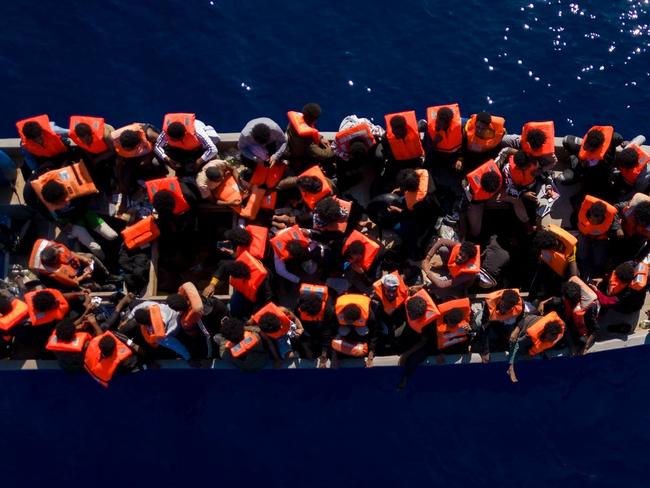
Dr Coyne was unsurprised by the sinister turn the German farmer protests have taken.
“When [people] feel threatened during a period of economic uncertainty, political uncertainty and environmental uncertainty … if someone says ‘well look at how much government spending on illegal immigrants they should really do something about that and spending the money on you’ … then it’s not a huge jump if you’re slightly right of centre then, under those stimuli, it’s not a huge jump as you might think to supporting the far right,” he said.
Far right parties are indeed gaining in popularity throughout western Europe by winning enough support to shape policy and score concessions in coalition governments, and even ministerial power
From Italy, to Sweden, to Finland, far right parties play a role in government and in other counties, such as Germany, Austria and France, they increasingly look like playing at least a kingmaker role following the next elections.
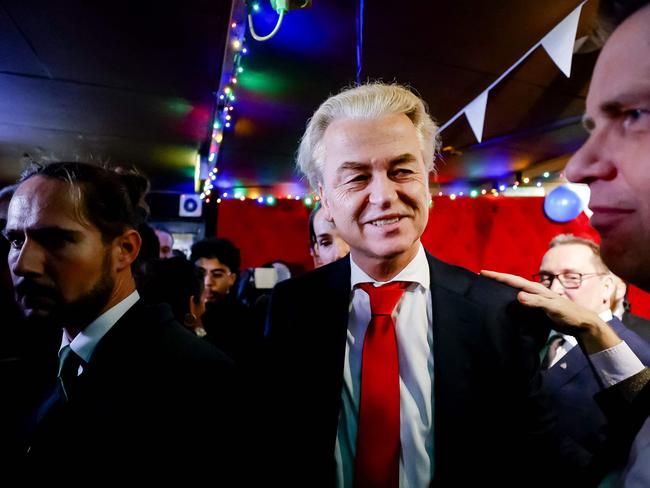
Anti-Islam populist leader Geert Wilders is seeking to form a government in the Netherlands after his Freedom Party emerged as the largest party in Dutch elections.
Analysts described the result as the biggest upset in Dutch politics in decades.
Director of policy at Open Society Foundations Europe Catherine Fieschim, an expert on the far right, said the popularity of the parties was despite different political systems and cultures.
“After every crisis we have told ourselves that the populists and far right are waning in Europe, and the fact is they have been rising more or less steadily, with a few interruptions, since the 1980s. They are really now a part of the landscape,” Ms Fieschim told The Guardian.
What was emerging was an “era of control”, she said.
“The left may promise protection, but the far right promises order and control. It can’t necessarily deliver it – but it speaks more to people’s individual and cultural fears.”
Originally published as Extremism is rising in Europe as far right groups exploit divisions in society



